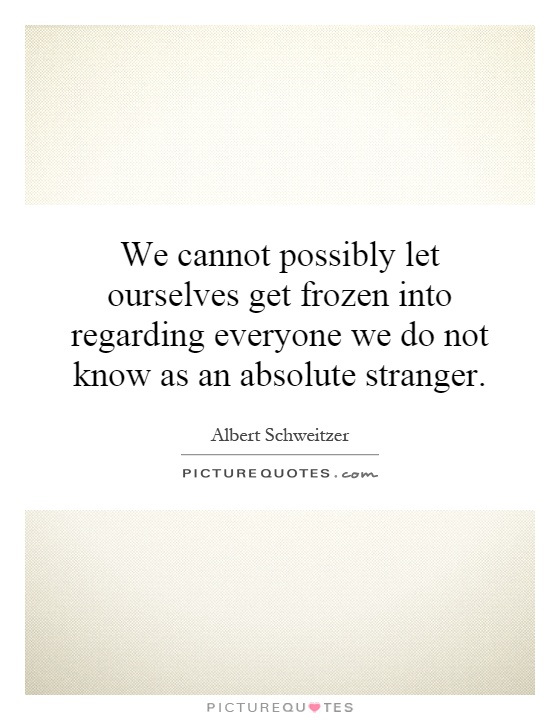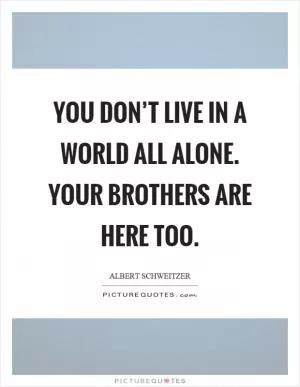We cannot possibly let ourselves get frozen into regarding everyone we do not know as an absolute stranger

We cannot possibly let ourselves get frozen into regarding everyone we do not know as an absolute stranger
Albert Schweitzer, a renowned theologian, philosopher, and physician, believed in the interconnectedness of all humanity. He emphasized the importance of recognizing the inherent worth and dignity of every individual, regardless of their background or circumstances. Schweitzer's philosophy centered around the idea that we cannot afford to view others as complete strangers, as this would only serve to perpetuate division and isolation.Schweitzer's belief in the interconnectedness of all humanity was deeply rooted in his Christian faith. He saw each person as a unique and valuable creation of God, deserving of love, compassion, and respect. Schweitzer's famous quote, "We cannot possibly let ourselves get frozen into regarding everyone we do not know as an absolute stranger," reflects his belief that we must actively work to break down barriers and build connections with those around us.
In his work as a physician, Schweitzer demonstrated his commitment to this philosophy by providing medical care to people in need, regardless of their race, religion, or social status. He believed that it was essential to treat each patient with empathy and understanding, recognizing their humanity and inherent worth. Schweitzer's approach to medicine was holistic, taking into account not only the physical needs of his patients but also their emotional, spiritual, and social well-being.
Schweitzer's philosophy of interconnectedness also extended to his views on environmental conservation and animal welfare. He believed that all living beings were interconnected and that humans had a responsibility to care for the natural world and its inhabitants. Schweitzer's reverence for life extended to all creatures, and he advocated for ethical treatment of animals and sustainable practices to protect the environment.












 Friendship Quotes
Friendship Quotes Love Quotes
Love Quotes Life Quotes
Life Quotes Funny Quotes
Funny Quotes Motivational Quotes
Motivational Quotes Inspirational Quotes
Inspirational Quotes